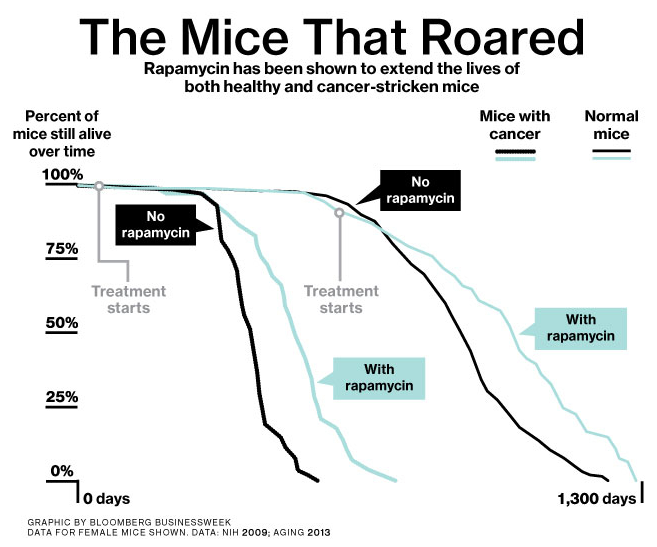Dogs Are Now Testing This Life-Extending Drug

By:
Researchers hope that a drug trial currently being tested on dogs will pave the path toward treatment of one of humanity's most inevitable ails: aging.
The FDA-approved drug, rapamycin, showed promising results when administered to older lab rats, reportedly extending their lifespan by improving heart health and apparently delaying the onset of certain age-related diseases. Now that dogs are involved in the drug trial, more people are taking interest in "geroscience," the biological study of aging, The New York Times reports.
The study, which is being conducted by researchers at the University of Washington, is part of an emerging (though controversial) trend in the scientific community. The idea is that instead of focusing on the treatment of specific age-related diseases, researchers would do better to investigate the biological mechanisms of aging itself. In other words, we should try to treat aging.
"Achieving significant increases in lifespan and healthspan of people’s pets would not only improve the quality of life for pet owners, but it would also have a profound impact on the way that the general public views research on the biology of aging," Dr. Matt Kaeberlein, who is leading the study, told ATTN:. "If the average pet owner comes to believe that aging research can make their dog live longer, they immediately become personally invested in the science."
Rapamycin has been around for a while, but its anti-aging properties are the main focus now.
The FDA approved rapamycin for transplant patients in 1999 after researchers determined that the drug had antifungal properties and suppressed the immune system. But since then, researchers have discovered various uses for the drug, including the delay of age-related diseases such as cancer and heart disease.
Kaeberlein says that there's "no simple answer" when it comes to the specifics of how rapamycin appears to extend life. In an email, he described what current studies have shown:
"Rapamycin inhibits a protein called mTOR, which we know from studies in yeast, worms, flies, and mice regulates the rate at which organisms age. Rapamycin probably does this through several mechanisms downstream of mTOR which include (1) increasing autophagy — the cellular garbage disposal that breaks down accumulated damage, (2) improving mitochondrial function — the way cells generate energy through metabolism, (3) reducing inflammation, and (4) improving stem cell function."
Critics of rapamycin say that it's not exactly clear how the drug extends life and what the side effects could be.
 Bloomberg - bloomberg.com
Bloomberg - bloomberg.com
Although several studies have demonstrated that rapamycin appears to extend the lifespan of lab rats, it's not entirely clear how it's achieving this "fountain of life" feat. It's possible that the drug works by inhibiting a cellular pathway that regulates growth and metabolism, as an early study of the drug found, but it's also distinctly possible that rapamycin simply delays common age-related diseases, giving scientists a false impression that it extends life, Bloomberg reports.
"There are no interventions that have been documented to slow, stop, or reverse aging in humans," Dr. S. Jay Olshansky, a professor of public health at the University of Illinois at Chicago, told Bloomberg. "The batting average is zero."
